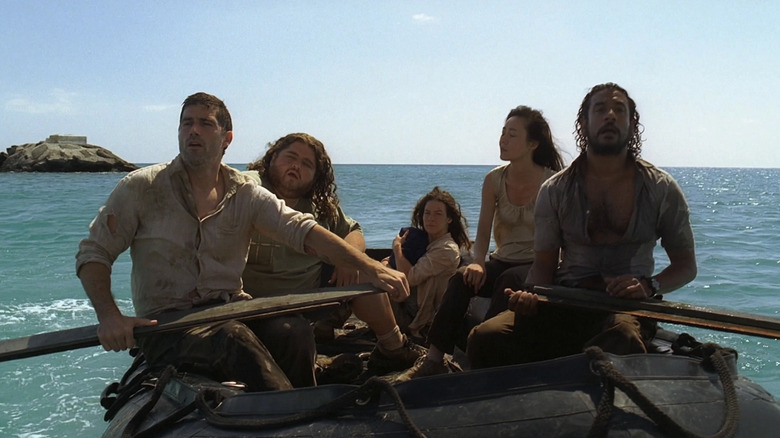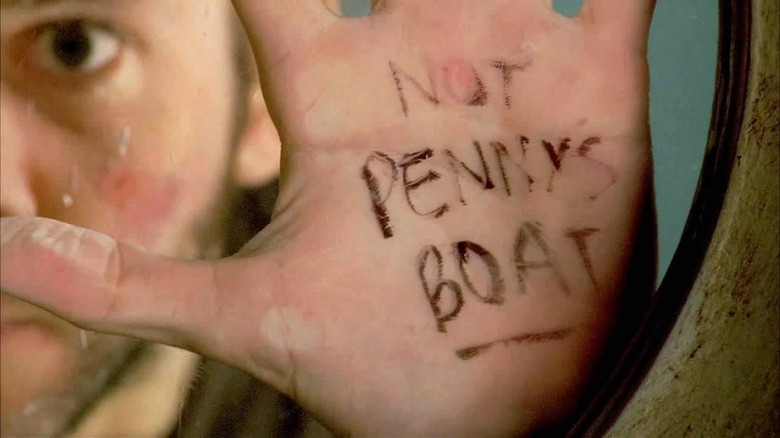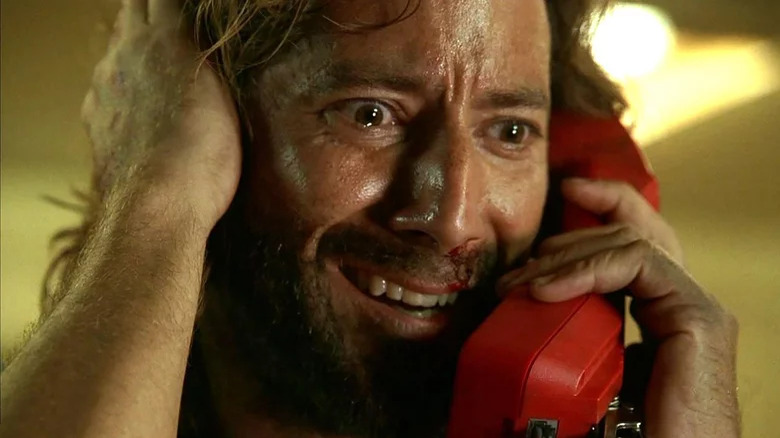Lost Still Has The Greatest TV Show Soundtrack Of All Time And It's Not Even Close
Years after "The Sopranos" started what we consider the Peak TV era, there came a show that changed network TV forever: "Lost." It's a show that is as controversial as it is influential, one that helped bring serialization to mainstream TV, make the showrunner as recognizable among TV obsessives as the actors on screen, and delivered one of the most controversial endings in history (though it is a perfect send-off for the show).
Much like "Star Wars," it doesn't matter where you fall on the love/hate scale of "Lost," there is one thing all fans can agree on — the score remains consistently stellar throughout.
A big part of why "Lost" is still talked about so many years later is Michael Giacchino's score. There is a reason why Giacchino has played multiple concerts celebrating the music of the show since it ended in 2010, and why hundreds of people from all over the world (including this writer) traveled to Hawaii recently just to hear the Emmy and Oscar-wining composer conduct a symphony orchestra playing the music from the series. That concert helped revive my love for the ABC drama, which was the first prime time TV drama I ever watched and the one that made me realize the power of television as a storytelling medium. 20 years after the premiere of the pilot (still one of the best ever), the music of "Lost" remains the greatest TV show soundtrack of all time, and it's not even close.
Lost's showrunners used Giacchino's score as a secret weapon
TV has a long history of great themes, especially theme songs that manage to sell the whole project in a few seconds. But few shows have well-remembered or liked musical scores. There are exceptions, of course, but over time, the number of shows that had elaborate musical compositions decreased exponentially. By the early '00s, it was extremely common to forgo melodies and instead use ambient music mostly made on a synthesizer or with a handful of musicians — think the "Twin Peaks" score.
Things changed with "Lost." The beloved, controversial series was a bit of a game changer when it came to music scores because it was played with a live orchestra, using actual musicians every week for each of the show's 121 episodes.
In the time since the show ended, orchestral music has become common, if not outright the norm, on TV. You'll hear it on "Game of Thrones" and "The Mandalorian," to "Succession" and "The Rings of Power" (anything by Bear McCreary, really). And yet, none of that music managed to add as much to its show as Giacchino's score does to "Lost."
During the concert at the Hawaii Theatre Center, co-showrunner Carlton Cuse talked of how the writers would simply write notes for where they wanted the composer to punch up the emotions of a scene — often when they couldn't think of a way to do it with words.
To showcase this, special guests Henry Ian Cusick and Evangeline Lily read a few scenes, including Charlie's big moment in "Through the Looking Glass." As they read from the script, they read the stage direction "The Giacchino starts to play," referring to the shorthand term Cuse and Damon Lindelof constantly used when they hoped the audience would feel something epic or emotional.
Giacchino's Lost score feels like a character unto itself
Giacchino's score is the key to "Lost," the element that elevates it from an intriguing mystery and a compelling character drama to a hugely emotional, cathartic story about people coming together. It's the music that sells the epic love story between Desmond and Penny in "The Constant." It's what made the smoke monster a terrifying creature long before we actually saw it. It's what makes the final scene between Jack and his father in that church one of the most emotionally resonant scenes in TV history. The music doesn't trick the audience into feeling what Giacchino or the writers want them to feel, but rather grabs the emotions you are already feeling and intensifies them.
The same way Howard Shore's score for "The Lord of the Rings" made The Shire a place that felt real and tangible, and made the Nazgul terrifying, so does Giacchino's score for "Lost" makes the castaways feel like real people, their joy palpable, and their pain and deaths absolutely heartbreaking.
Few film and TV composers can elicit the kind of instant visceral response Giacchino can, even 20 years later. When, at the end of the concert, Evangeline Lily called for an encore by simply asking the audience if they were prepared for "THE one," there was no mistake in anyone's mind what she meant: The orchestra concluded the show by playing "Moving On (The End)," the final track of the series finale.
Out of every emotional beat in the series, this final piece of music in the "Lost" soundtrack is the one that can make an entire theater full of people cry within the first few notes. Not because it's sad, but because it provides emotional catharsis as the characters finally move on. That's the power of "The Giacchino," and the true power of "Lost."


